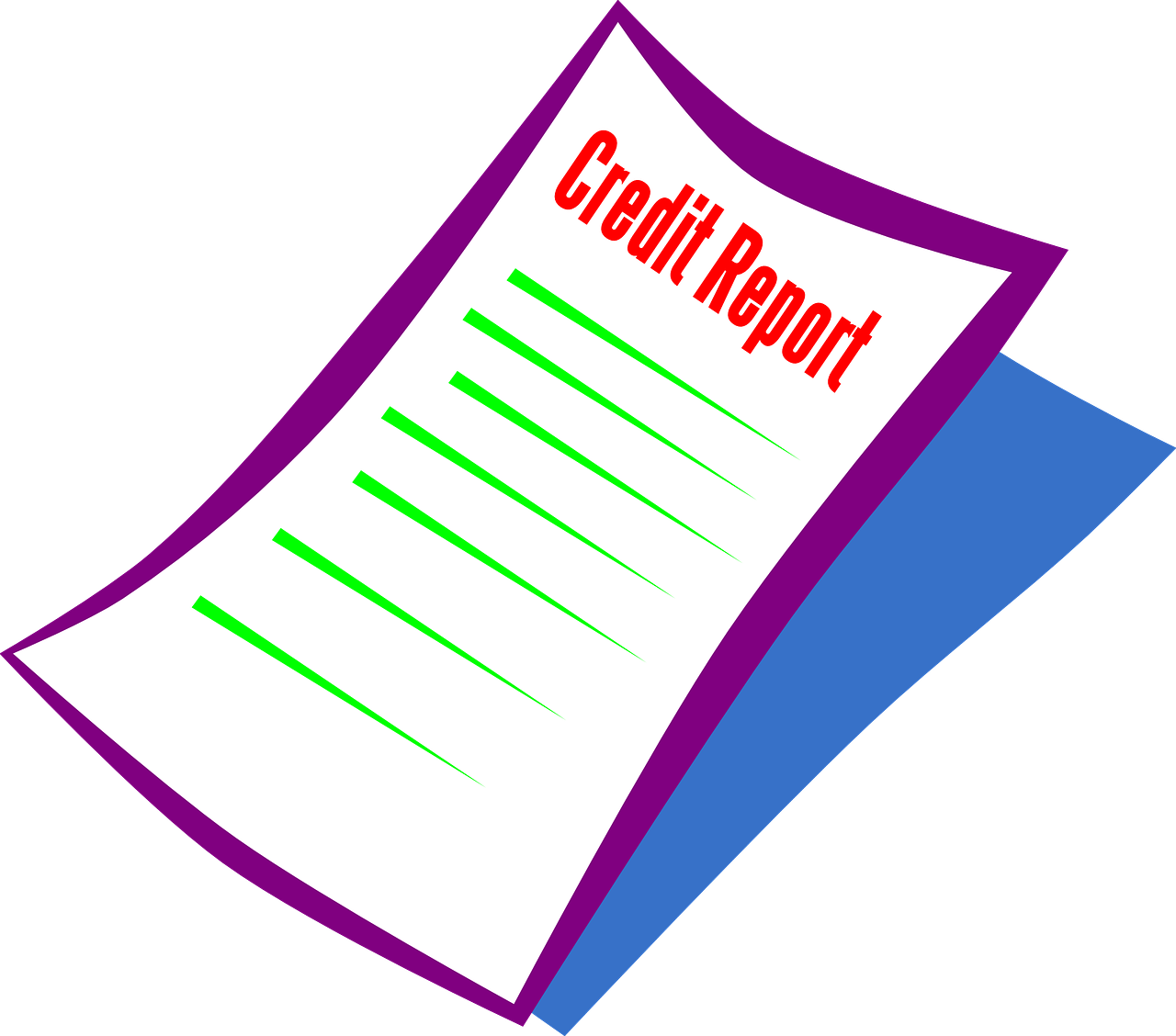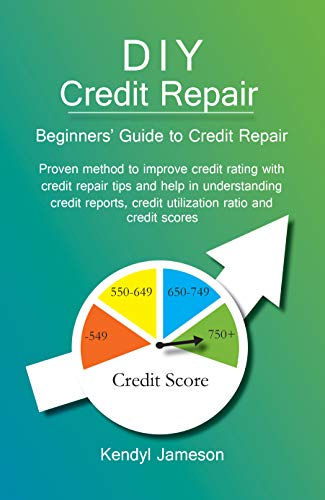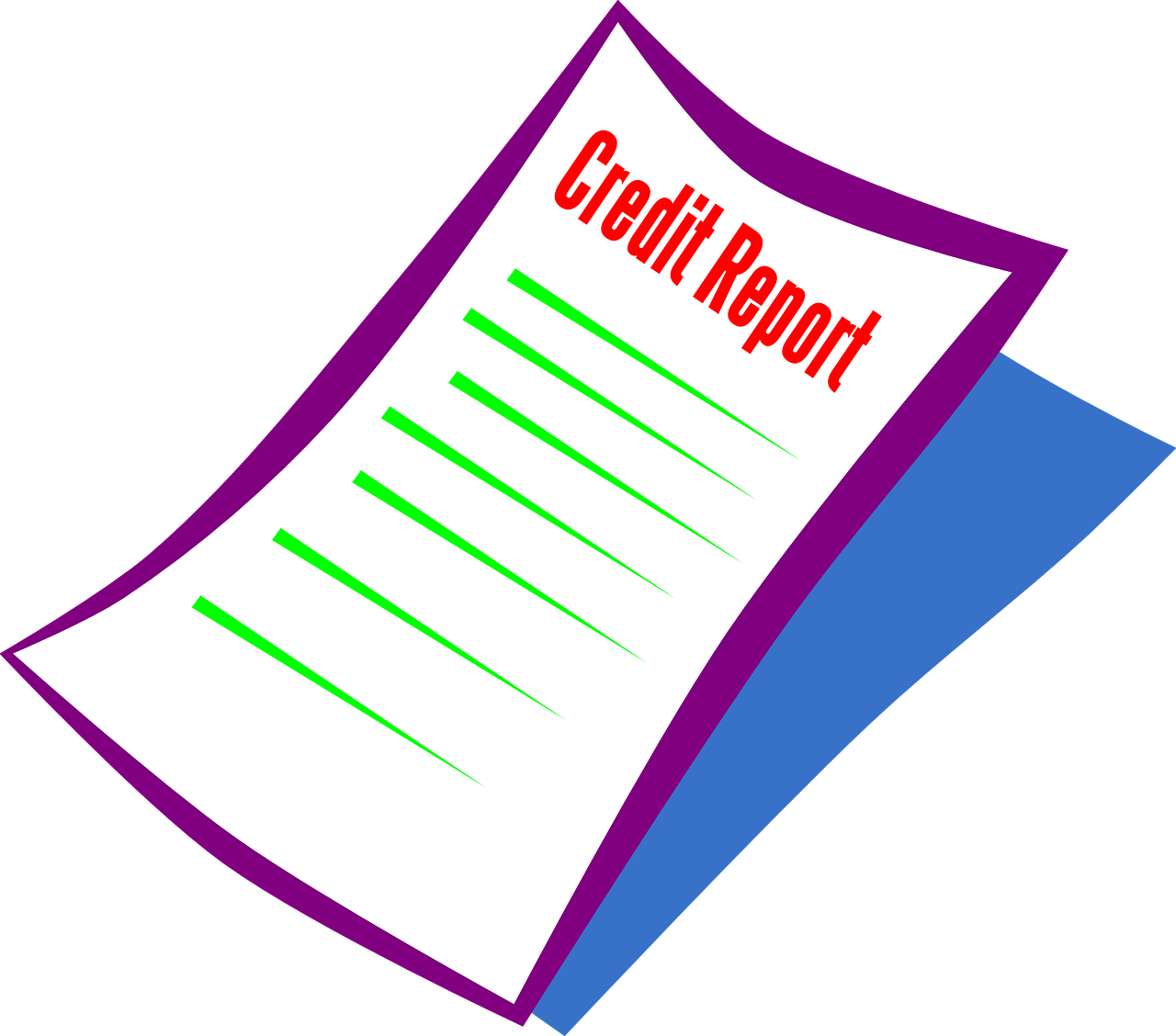Introduction
Your credit score is more than just a number; it’s a vital financial asset. Understanding credit scores and reports is fundamental for achieving and maintaining financial health. In this article, we’ll delve into the world of credit scores, demystify credit reports, and discuss how this knowledge can empower you to make informed financial decisions.
What is a Credit Score? A credit score is a three-digit number that reflects your creditworthiness. It serves as a snapshot of your financial history and is used by lenders, landlords, and even potential employers to assess your reliability as a borrower or tenant. Learn about the factors that influence your credit score and how different scoring models work.
Looking for more insights? You’ll find them right here in our extended coverage: Financial Literacy: What It Is, and Why It Is So Important
The Importance of a Good Credit Score
Discover why a good credit score is crucial for your financial well-being. From securing favorable loan terms to lower insurance premiums, a strong credit score opens doors to financial opportunities that can save you money in the long run.
A solid credit score acts as your financial passport, granting you access to various benefits and opportunities that can significantly impact your financial stability. Beyond its role in obtaining credit, a good credit score can:
Lower Interest Rates: Lenders reward borrowers with high credit scores by offering lower interest rates on loans and credit cards. This translates into lower monthly payments and less interest paid over the life of the loan, saving you substantial amounts of money.
Easier Loan Approvals: When you apply for a loan, a strong credit score makes the approval process smoother. You’re more likely to qualify for loans, including mortgages, auto loans, and personal loans, which can be crucial for achieving your goals, such as homeownership or pursuing higher education.
Higher Credit Limits: A good credit score can lead to higher credit card limits. This not only provides more financial flexibility but also improves your credit utilization ratio, another factor affecting your credit score.
Better Insurance Rates: Insurers often consider your credit score when calculating premiums. Maintaining a high credit score can result in lower insurance costs for auto, home, and even life insurance policies.
Favorable Rental Terms: Landlords may check your credit before renting to you. A good credit score can help you secure a rental property more easily and even negotiate better rental terms.
Employment Opportunities: In some industries, employers may review credit reports as part of the hiring process. A strong credit history can positively influence their perception of your responsibility and reliability.
Utility Deposits: Utility companies may require smaller deposits or waive them altogether if you have good credit. This reduces the upfront costs associated with setting up services like electricity and internet.
Financial Security: A good credit score provides a safety net in times of unexpected expenses or emergencies. It allows you to access credit quickly and at favorable terms, ensuring you can address unforeseen financial challenges without resorting to high-interest loans or credit cards.
Negotiating Power: Armed with a strong credit score, you have better negotiating power when dealing with financial institutions. You can request lower interest rates, reduced fees, or improved terms on your existing loans or credit cards.
In summary, your credit score serves as a valuable financial asset that can positively impact various aspects of your life. By maintaining a good credit score, you not only save money but also gain access to opportunities that contribute to your overall financial well-being.
For a comprehensive look at this subject, we invite you to read more on this dedicated page: Credit Score vs. Credit Report – Wells Fargo
How to Access Your Credit Report
Your credit report is the foundation of your credit score. Find out how to access your credit reports from the three major credit bureaus (Equifax, Experian, and TransUnion). Understand your rights under the Fair Credit Reporting Act (FCRA) and the importance of reviewing your reports regularly.
What’s in Your Credit Report? Explore the key components of a credit report, including personal information, account history, payment history, public records, and inquiries. Learn how to read and interpret the information in your credit report to spot errors and areas for improvement.
Understanding Credit Scores and Reports: A Key to Financial Health
Your credit report is the foundation of your credit score. It’s crucial to know how to access your credit reports from the three major credit bureaus: Equifax, Experian, and TransUnion. Understanding your rights under the Fair Credit Reporting Act (FCRA) and the importance of regularly reviewing your reports is the first step toward financial health.
What’s in Your Credit Report? Your credit report contains several key components that paint a comprehensive picture of your credit history. These components include:
1. Personal Information: Your credit report starts with personal information, such as your name, address, date of birth, and Social Security number. It’s important to ensure this information is accurate, as errors can affect your credit.
2. Account History: This section provides a detailed list of your credit accounts, including credit cards, loans, and mortgages. It shows the type of account, the date it was opened, credit limits or loan amounts, and your payment history.
3. Payment History: Payment history is a critical factor in your credit score. It tracks whether you’ve paid your bills on time, missed any payments, or had accounts sent to collections.
4. Public Records: If you’ve had significant financial issues, such as bankruptcies, tax liens, or judgments, they will be included in this section. These negative items can have a severe impact on your credit.
5. Inquiries: Inquiries show which lenders or creditors have requested your credit report. There are two types of inquiries: hard inquiries (initiated by you when applying for credit) and soft inquiries (initiated by lenders for promotional purposes).
Interpreting Your Credit Report Learning how to read and interpret your credit report is essential for spotting errors and identifying areas for improvement:
Review for Accuracy: Check personal information, account details, and payment history for any discrepancies. Dispute inaccuracies with the credit bureau to have them corrected.
Payment History: Ensure that your payment history accurately reflects your on-time payments. Late or missed payments can significantly impact your credit score.
Utilization Rate: Examine your credit card balances and credit limits. A high credit utilization rate (the ratio of credit card balances to credit limits) can negatively affect your credit score.
Negative Items: If there are negative items like collections or late payments, assess whether they are accurate. If not, take steps to rectify them.
Inquiries: Monitor hard inquiries and ensure they are legitimate. Multiple hard inquiries within a short time can lower your credit score.
Understanding your credit report is the first step in managing your credit effectively. Regularly reviewing it allows you to catch errors early and make improvements that can lead to a healthier credit score. In subsequent articles, we will delve deeper into credit scores and strategies for improving and maintaining them, so stay tuned for more valuable insights into your financial well-being.
If you’d like to dive deeper into this subject, there’s more to discover on this page: 5 Cs of Credit: What They Are, How They’re Used, and Which Is Most …

Building and Maintaining Good Credit
Building and maintaining a positive credit history is essential. Discover practical tips and strategies to establish credit if you’re new to the credit game or to rebuild your credit if it’s taken a hit.
Building and maintaining a positive credit history is not just essential; it’s a fundamental aspect of financial well-being that can have a lasting impact on your life. Whether you’re just starting to establish credit or working to rebuild it after setbacks, here are some practical tips and strategies to guide you on this crucial journey:
Know Your Credit Score: Start by understanding where you stand. Obtain your credit report from major credit bureaus like Experian, Equifax, and TransUnion. Your credit score is a numerical representation of your creditworthiness, and it’s essential to know where you currently stand.
Establish Credit Responsibly: If you’re new to credit, consider opening a secured credit card or becoming an authorized user on someone else’s account to build a positive credit history. Responsible use of these accounts can help establish your creditworthiness.
Create a Budget: Managing your finances effectively is a cornerstone of good credit. Create a budget that outlines your income, expenses, and savings goals. Sticking to a budget helps ensure that you can manage your credit obligations responsibly.
Pay Bills on Time: Consistently paying your bills on time is one of the most critical factors in building and maintaining good credit. Late payments can have a significant negative impact on your credit score.
Reduce Credit Card Balances: High credit card balances relative to your credit limit can negatively affect your credit score. Aim to keep your credit card balances low and pay them off in full each month if possible.
Diversify Your Credit: Having a mix of different types of credit accounts, such as credit cards, installment loans, and retail accounts, can positively influence your credit score. However, only open new accounts when needed and manage them responsibly.
Regularly Monitor Your Credit: Continuously monitor your credit reports for inaccuracies or fraudulent activity. You’re entitled to one free credit report from each major bureau annually. Reviewing your reports helps ensure that your credit history is accurate.
Dealing with Negative Items: If you have negative items on your credit report, such as late payments or collections, take steps to address them. Contact creditors to negotiate payment plans or settlements and work to have inaccuracies corrected.
Seek Professional Advice: If your credit situation is particularly challenging, consider seeking advice from a credit counselor or financial advisor. They can provide tailored strategies to help you improve your credit.
Exercise Patience: Rebuilding or establishing credit takes time. Positive changes may not happen overnight, but consistent, responsible financial behavior will yield results over time.
Avoid Excessive Credit Applications: Applying for multiple credit accounts in a short period can negatively impact your credit score. Only apply for credit when necessary and when you’re confident you meet the criteria.
Educate Yourself: Continue to educate yourself about credit management, financial literacy, and responsible borrowing. Understanding the intricacies of credit can help you make informed decisions.
In conclusion, building and maintaining good credit is an ongoing process that requires discipline, patience, and responsible financial management. Whether you’re starting from scratch or working to improve your credit, these practical tips and strategies can help you navigate the credit game successfully. By taking control of your financial future, you can unlock opportunities for homeownership, lower interest rates, and improved overall financial security.
For additional details, consider exploring the related content available here Credit reports and scores | Consumer Financial Protection Bureau

Managing Credit Responsibly
Explore the dos and don’ts of responsible credit management. From making on-time payments to managing credit utilization, you’ll gain insights into how to maintain a healthy credit profile.
Responsible credit management is the cornerstone of maintaining a healthy credit profile and financial stability. Here are some crucial dos and don’ts to help you navigate the world of credit wisely:
Do:
Pay Bills On Time: Timely payments are one of the most significant factors in determining your credit score. Always pay your bills by the due date to avoid late fees and negative impacts on your credit.
Monitor Your Credit Reports: Regularly review your credit reports from all three major credit bureaus (Equifax, Experian, and TransUnion) to check for errors or unauthorized accounts. You’re entitled to a free annual report from each bureau.
Maintain Low Credit Utilization: Try to keep your credit card balances well below their credit limits. High credit utilization can negatively affect your credit score. Aim for a utilization rate of 30% or lower.
Diversify Your Credit: A mix of credit types, such as credit cards, installment loans, and mortgages, can positively impact your credit score. However, only open new credit accounts when necessary, and avoid accumulating excessive debt.
Set Up Payment Reminders: Use tools like calendar alerts or automatic payments to ensure you never miss a due date. Consistency in making payments is key to building and maintaining a strong credit history.
Create a Budget: Develop a budget to manage your finances effectively. Knowing where your money goes can help you avoid overspending and accumulating unnecessary debt.
Don’t:
Miss Payments: Late payments can have a severe negative impact on your credit score. Even one missed payment can lower your score significantly, so prioritize making payments on time.
Max Out Credit Cards: Using your credit cards up to their limits can signal financial distress to lenders and negatively affect your credit score. Aim to keep your credit card balances low compared to your credit limits.
Apply for Multiple Credit Cards at Once: Each credit card application typically results in a hard inquiry on your credit report, which can lower your score slightly. Applying for too much credit within a short period may raise red flags with creditors.
Close Old Credit Accounts: Length of credit history is a factor in your credit score. Closing old credit accounts can shorten your credit history and potentially lower your score. Keep your oldest accounts open to maintain a longer credit history.
Ignore Your Credit: Ignoring your credit until you need it for a major purchase is a mistake. Regularly monitoring and managing your credit can help you catch and address issues early.
Co-Sign Without Caution: Co-signing a loan for someone else means you’re responsible for that debt. If the other person defaults, it can harm your credit and financial well-being.
Responsible credit management is a lifelong skill that can lead to financial freedom and flexibility. By following these dos and don’ts, you can establish and maintain a strong credit profile that opens doors to better financial opportunities.
For additional details, consider exploring the related content available here Financial Literacy: What It Is, and Why It Is So Important

How Negative Information Affects Your Credit
Understand the impact of late payments, collections, bankruptcies, and other negative items on your credit report. Learn how long negative information stays on your report and strategies to mitigate the damage.
Understanding the Impact of Negative Items
Negative items on your credit report can have a significant impact on your credit score and overall financial health. It’s crucial to understand how different types of negative information can affect your credit:
1. Late Payments: Late payments, even if just a few days overdue, can harm your credit score. The more recent and frequent the late payments, the more significant the impact.
2. Collections: Accounts sent to collections indicate that you’ve failed to pay your debts, and this can severely lower your credit score.
3. Bankruptcies: Bankruptcies have a long-lasting impact on your credit report. Chapter 7 bankruptcies typically stay on your report for ten years, while Chapter 13 bankruptcies remain for seven years.
4. Foreclosures: If you’ve gone through a foreclosure, it will typically stay on your credit report for seven years.
5. Tax Liens: Unpaid tax liens can remain on your credit report for seven years from the date they’re paid. However, if left unpaid, they can linger much longer.
6. Civil Judgments: Civil judgments, typically resulting from a lawsuit, can negatively impact your credit report.
7. Hard Inquiries: While not necessarily a negative item, hard inquiries can slightly lower your credit score, especially if there are many within a short period.
Mitigating the Damage
While negative items can harm your credit, there are strategies to mitigate their impact and improve your creditworthiness:
1. Pay On Time: The most effective way to prevent late payments is to establish a habit of paying your bills on time. Set up reminders or automatic payments to ensure you never miss a due date.
2. Negotiate with Creditors: If you’re struggling to pay your bills, contact your creditors to discuss payment arrangements or settlements. Some creditors may be willing to work with you to resolve outstanding debts.
3. Dispute Errors: Regularly review your credit reports for errors, such as accounts you don’t recognize or incorrect late payment entries. Dispute these errors with the credit bureaus to have them corrected.
4. Seek Credit Counseling: If your financial situation is challenging, consider seeking credit counseling from a reputable agency. They can provide guidance on managing debt and improving your financial stability.
5. Rebuild with Positive Credit: Building positive credit history is essential. Consider secured credit cards, responsible use of credit, and timely payments to demonstrate your creditworthiness.
6. Be Patient: Time heals credit wounds. As negative items age, their impact lessens. Focus on managing your finances responsibly, and your credit score will gradually improve.
Understanding the impact of negative items on your credit report and taking proactive steps to address them is a vital aspect of financial responsibility. By staying informed and taking action, you can work toward a healthier credit profile and better financial opportunities in the future.
Additionally, you can find further information on this topic by visiting this page: Buying a home? The first step is to check your credit | Consumer …

Improving Your Credit Score
If your credit score isn’t where you want it to be, don’t despair. Discover actionable steps to improve your credit score over time, including debt repayment strategies and credit counseling.
If your credit score isn’t where you want it to be, there’s no need to despair. In fact, your credit score is not a fixed, unchangeable number; it’s a dynamic reflection of your financial behavior. With dedication and the right strategies, you can work towards improving your credit score over time. Here are some actionable steps to help you embark on this journey to better credit:
Review Your Credit Reports: Start by obtaining copies of your credit reports from all three major credit bureaus: Experian, Equifax, and TransUnion. Carefully review these reports for inaccuracies, errors, or fraudulent accounts. Dispute any discrepancies you find to ensure that your credit report accurately reflects your financial history.
Create a Budget: A well-structured budget is your best friend on the road to better credit. It helps you track your income, expenses, and savings goals. By knowing where your money is going, you can allocate funds to pay down debt and avoid late payments.
Prioritize Debt Repayment: Develop a strategic plan for paying down your outstanding debts. Start by paying off high-interest debts first, such as credit card balances. Consider snowball or avalanche methods for debt repayment, depending on your preferences and financial situation.
Negotiate with Creditors: If you’re struggling to make payments, don’t hesitate to reach out to your creditors. Many lenders are willing to work with you to set up payment plans, reduce interest rates, or even negotiate settlements. Open communication can prevent your accounts from going into collections.
Pay Bills on Time: Consistently making on-time payments is one of the most significant factors in improving your credit score. Set up reminders or automatic payments to ensure you never miss a due date. Even a single late payment can negatively affect your score.
Reduce Credit Card Balances: High credit card balances relative to your credit limit can harm your credit utilization ratio, a crucial factor in your credit score. Aim to keep your balances below 30% of your credit limit on each card, and pay them off in full whenever possible.
Don’t Close Old Accounts: Closing old credit accounts can lower your credit score by reducing your available credit history. Keep your oldest accounts open, even if you’re not actively using them, to maintain a longer credit history.
Seek Credit Counseling: Consider enlisting the help of a reputable credit counseling agency. These professionals can provide personalized guidance on managing your debts, creating a budget, and improving your financial situation.
Avoid New Credit Applications: Each time you apply for new credit, a hard inquiry is made on your credit report, which can temporarily lower your score. Avoid unnecessary credit applications, especially when trying to improve your credit.
Be Patient and Persistent: Remember that rebuilding credit takes time, and improvements may not happen overnight. Be persistent in your efforts, stay committed to your financial goals, and remain patient as your credit score gradually improves.
Educate Yourself: Continue learning about credit management and financial literacy. Understanding the factors that influence your credit score and the principles of responsible borrowing can help you make informed decisions.
Monitor Your Progress: Regularly monitor your credit reports and credit score to track your progress. Many websites and financial institutions offer free access to credit scores and monitoring services.
In summary, improving your credit score is entirely achievable with the right strategies and a commitment to responsible financial management. By taking proactive steps to address any issues, manage your debts, and build a positive credit history, you can gradually work your way toward the credit score you desire. Remember that your credit score is a reflection of your financial responsibility and can have a significant impact on your financial future, so it’s worth the effort to improve it.
Explore this link for a more extensive examination of the topic: 5 Cs of Credit: What They Are, How They’re Used, and Which Is Most …

Conclusion
Your financial health and future borrowing capacity depend on your understanding of credit scores and reports. By mastering these essential concepts, you can take control of your financial destiny, secure better loan terms, and work toward your long-term financial goals. Start your journey to financial well-being by gaining a deep understanding of your credit today.
Understanding credit scores and reports is a fundamental aspect of achieving financial well-being and securing a stable financial future. Here’s why mastering these concepts is crucial:
Access to Better Financial Opportunities: A strong credit score opens doors to better financial opportunities. Lenders use your credit score to determine the terms of loans, credit cards, and mortgages. With a high credit score, you’re more likely to qualify for lower interest rates and better terms, saving you money over time.
Lower Interest Rates: Having a good credit score can lead to significantly lower interest rates on loans and credit cards. This means you’ll pay less in interest charges over the life of your loans, leaving you with more money to achieve your financial goals.
Easier Approval for Credit: Whether you’re applying for a credit card, a car loan, or a mortgage, a strong credit history makes the approval process smoother. It increases your chances of being approved for the credit you need.
Renting and Employment: Landlords and some employers may check your credit history as part of their application process. A positive credit report can improve your chances of being approved for rental housing or certain job opportunities.
Financial Stability: Managing your credit responsibly contributes to financial stability. It allows you to better plan for major expenses, emergencies, and retirement. A solid financial foundation can lead to peace of mind and a comfortable retirement.
Lower Insurance Premiums: Some insurance companies use credit information to determine premiums for auto and homeowners’ insurance. Good credit can result in lower insurance costs.
Negotiating Power: A strong credit profile gives you negotiating power in various financial transactions. You can negotiate for better terms, lower fees, and more favorable terms when dealing with lenders and creditors.
Achieving Long-Term Goals: Your ability to achieve long-term financial goals, such as buying a home, starting a business, or sending your children to college, often depends on your creditworthiness. A positive credit history makes it easier to pursue these goals.
To start your journey to financial well-being, consider these steps:
Check Your Credit Reports: Regularly review your credit reports from all three major credit bureaus (Equifax, Experian, and TransUnion). Ensure the information is accurate and up to date.
Monitor Your Credit Score: Many credit card companies and financial institutions offer free access to your credit score. Monitor your score regularly to track your progress and identify areas for improvement.
Practice Responsible Credit Management: Follow the dos and don’ts of responsible credit management, as outlined earlier. Pay bills on time, maintain low credit card balances, and avoid excessive debt.
Educate Yourself: Continue to educate yourself about credit-related topics. There are numerous resources available online and through financial literacy programs that can help you become more knowledgeable about credit and financial management.
By mastering the concepts of credit scores and reports, you can take control of your financial destiny, secure better loan terms, and work toward your long-term financial goals. It’s an essential step toward achieving financial well-being and building a brighter financial future.
For additional details, consider exploring the related content available here Understanding Required Financial Assistance in Medical Care …
More links
For a comprehensive look at this subject, we invite you to read more on this dedicated page: What Is a Credit Score? Definition, Factors, and Ways to Raise It
